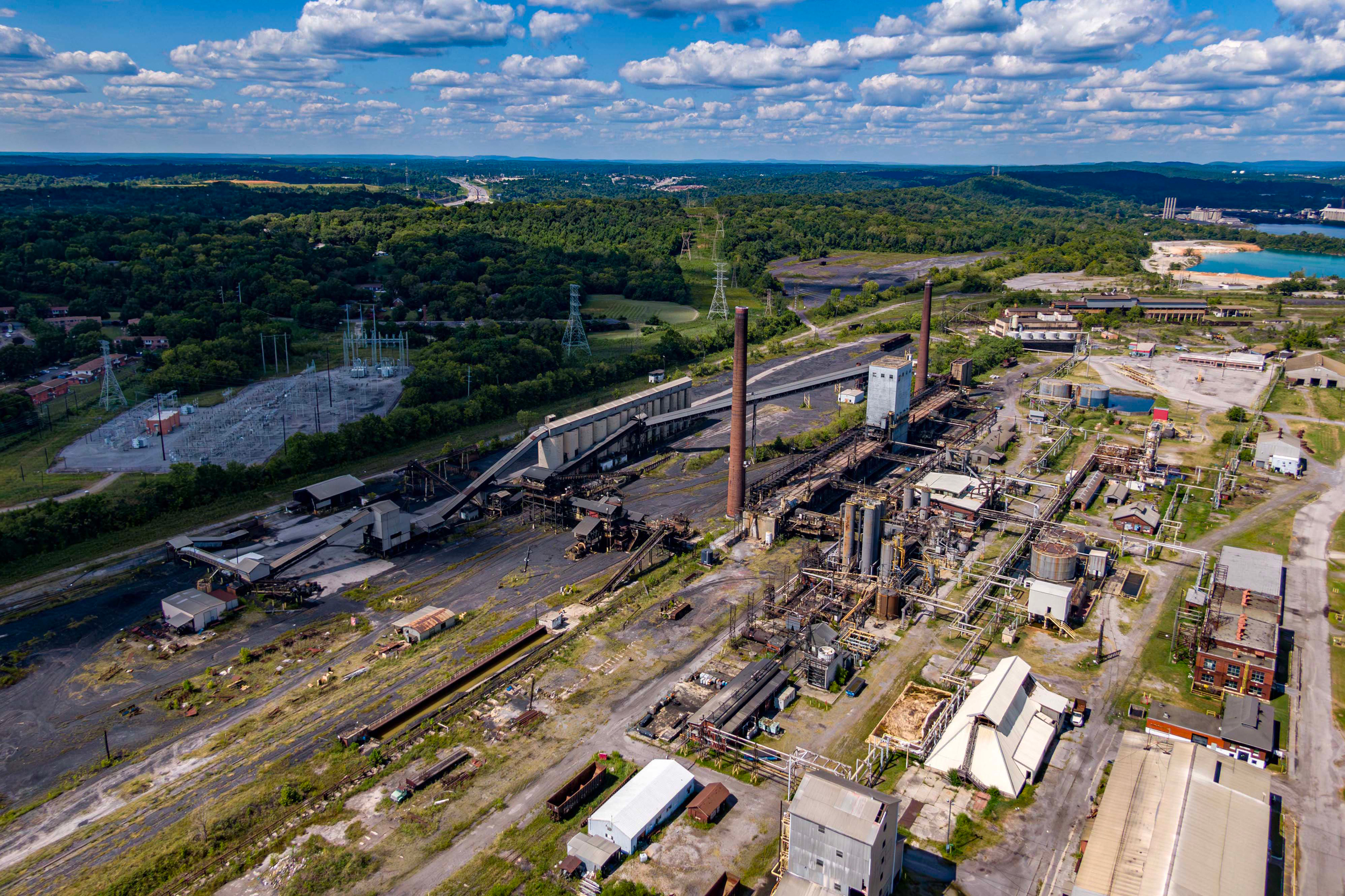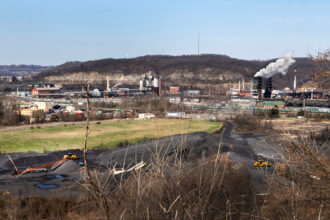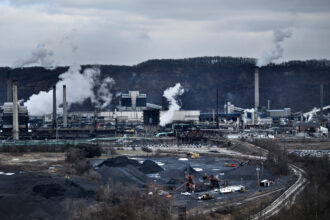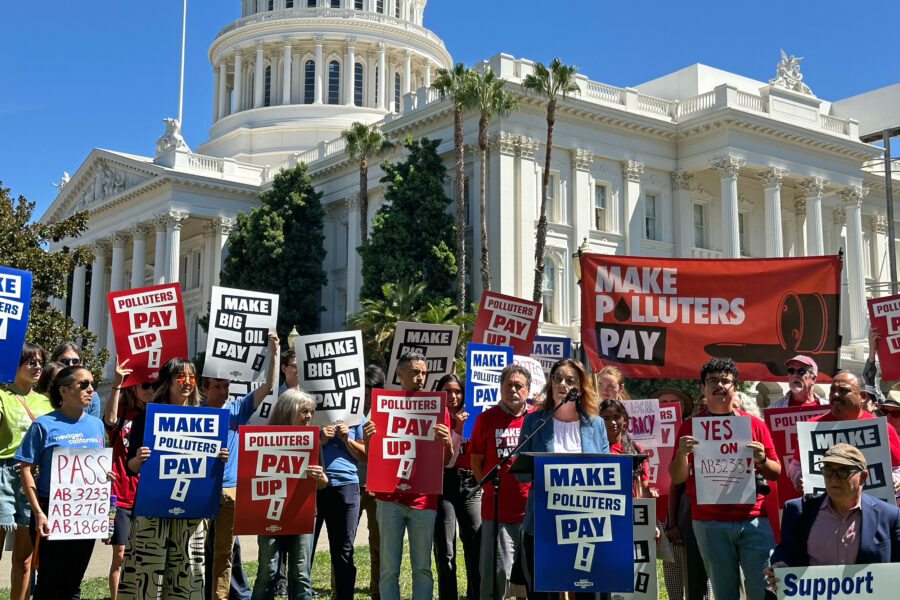BIRMINGHAM, Ala.— Chief U.S. District Judge David Proctor is fed up.
“I’m not fooling around anymore,” Proctor said Wednesday in a federal court hearing in Birmingham. “This has gotten past the point of any good faith in this case.”
But the target of Proctor’s ire is not around to hear it.
Jay Justice—son of West Virginia governor and now U.S. Senate candidate Jim Justice—was a no-show at a federal court hearing Wednesday in a Clean Water Act lawsuit over pollution from a long-idled coking plant in north Birmingham.
In the hearing, Proctor scolded Bluestone Coke, the plant’s owner, and Justice, the company’s president, for “thumbing their nose” at the court.
“What’s even more significant than a pattern?” Proctor asked the courtroom when considering the defense’s conduct. “This has permeated every aspect of this case.”
James Seal, a Birmingham-based bankruptcy attorney representing Bluestone, was the only representative of the defense at the hearing. He told Inside Climate News afterward that he could not comment on pending litigation, and that the case was still pending.
Efforts to reach the Justice family or other personnel at Bluestone Coke for comment were unsuccessful. A spokesman for the West Virginia Governor’s Office said it could not comment on the matter as it falls outside of state government.
Proctor filed an order Thursday finding Justice and Bluestone in civil contempt for ignoring the court’s instructions.
“Defendants have violated three separate court orders requiring them to produce responses and negotiate, in good faith, dates for depositions,” the order said.
Jay Justice took over several of the family’s companies when his father entered politics, including Bluestone Coke. He and facility manager Donald Wiggins were named as defendants alongside Bluestone Coke in a lawsuit alleging violations of the Clean Water Act.
Bluestone is the latest owner of the coking plant, which has been shuttered almost three years due to earlier air pollution violations and is listed as a potentially responsible party for a Superfund site that covers three Birmingham neighborhoods.
The Clean Water Act suit, filed last year, alleges that runoff and waste left behind at the plant continues to pollute groundwater and a local creek that eventually runs into the Black Warrior River.
The plaintiffs, Black Warrior Riverkeeper and the Greater Birmingham Alliance to Stop Pollution (GASP), say the plant is “continually discharging unpermitted pollutants” into Five Mile Creek, including barium, strontium, E. coli, volatile organic compounds and “staggering amounts” of “coal, coke, slag and associated sediments.”
The plaintiffs seek a court order to force Bluestone to stop unpermitted discharges into the creek, to “remove any fill material discharged into the unnamed tributary to Five Mile Creek,” and to pay a civil fine and the plaintiffs’ attorney fees.
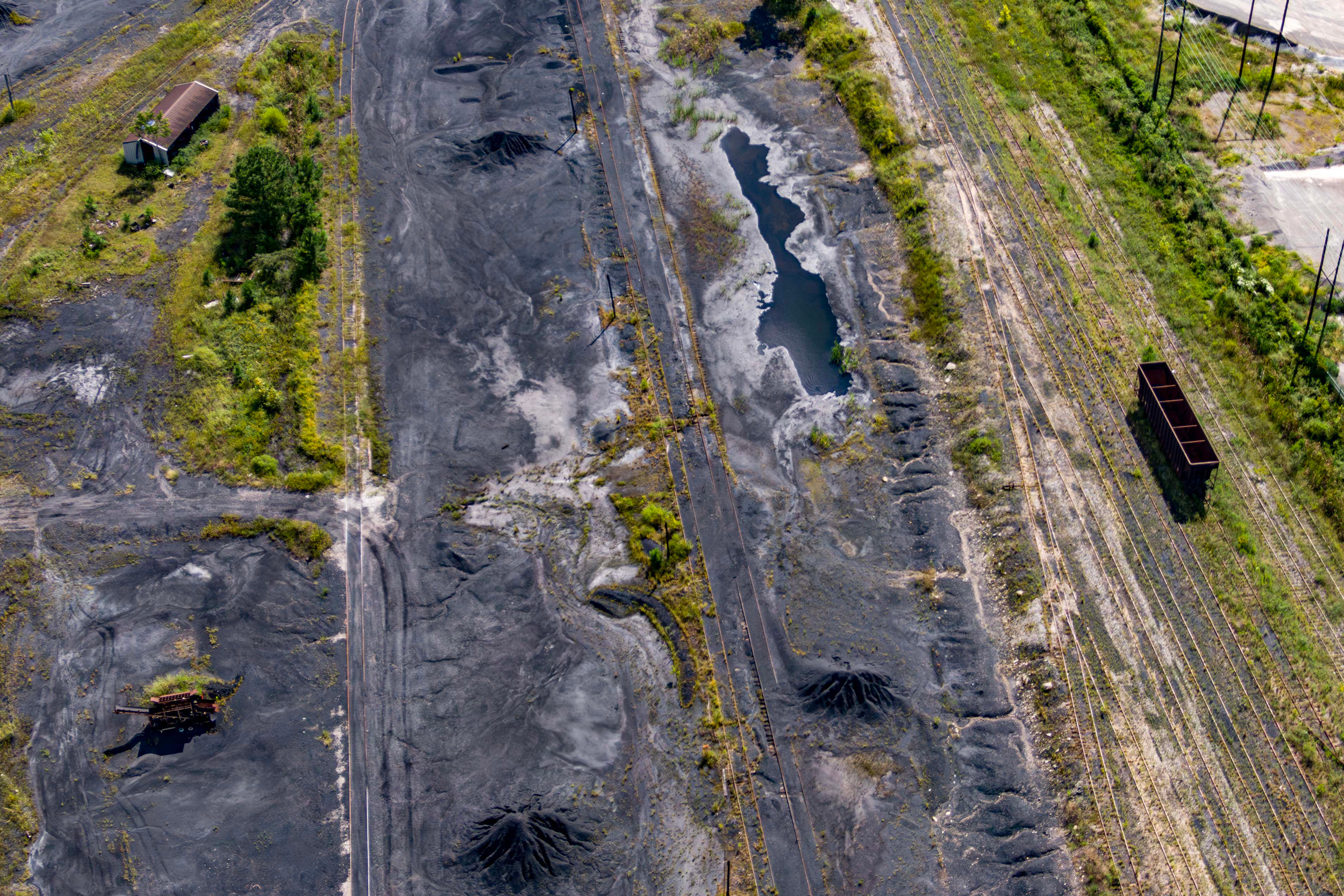
But so far the case can’t be litigated because the defense has, mostly, refused to show up.
“Bluestone Coke is treating this legal proceeding just like it’s treating North Birmingham,” said Sarah Stokes, an attorney with the Southern Environmental Law Center, which represents the plaintiffs. “Bluestone’s representatives have refused to produce documents, show up for hearings or take any responsibility for the company’s reckless behavior.”
Proctor scheduled Wednesday’s hearing because the defense failed to produce discovery in the case and canceled a scheduled mediation conference with another judge. Bluestone never submitted a mediation statement for the conference and informed the court two days before mediation that representatives could not attend.
“I am not going to tolerate this in any way, shape or form,” Proctor said. “This is not how we’re going to proceed in this case going forward.
“And if it is, people are going to be getting checkbooks out.”
Seal, as the lone representative of the defense, bore the brunt of Proctor’s comments and promised to deliver the message to his clients.
A Legacy of Pollution and Environmental Racism
As Proctor struggles to handle an absentee defendant, the North Birmingham neighborhoods that have received air, water and soil pollution from the plant for more than 100 years continue to deteriorate.
Charlie Powell, who grew up a stone’s throw away from the plant in the Fairmont neighborhood, has watched his neighborhood vanish.
“If you go down there and look at that area now, man, there’s nothing down there but nothing,” Powell said. “There’s nothing going to ever be out there again.”
Powell, 71, said he lived in Fairmont for more than 42 years before moving to Center Point, outside of Birmingham’s city limits. He recalls swimming in Five Mile Creek as a child, despite the skin irritations the water caused even back in the 1960s.
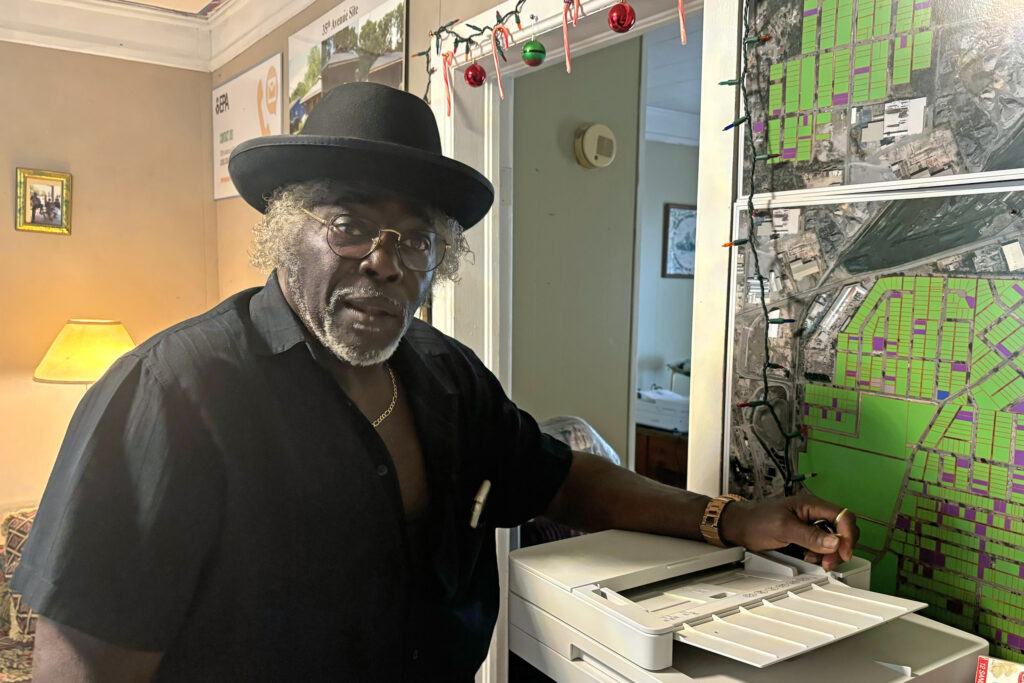
Now, he calls it “Tar Creek” and wouldn’t let his granddaughter or any child swim there.
Fairmont, Collegeville and Harriman Park are the three historic Black Birmingham neighborhoods surrounding what is now Bluestone Coke. These neighborhoods were isolated by redlining, which restricted Black residents to certain areas of the city through federal policies and local zoning laws.
“Back then, Black folks had a limited amount of places they could stay,” Powell said. “Now, with that plant there, there came a lot of pollution and good jobs, let me say that too. But behind all of this here, there was a lot of health risks.”
The U.S. Environmental Protection Agency designated all three neighborhoods as the 35th Avenue Superfund Site in 2012 due to high levels of contamination found in soil at many of the 2,119 residential properties in the area.
Coke is a treated form of coal used to make steel. Coke plants bake loads of coal in high-temperature, low-oxygen ovens to remove impurities.
Unfortunately, the process generates extremely high levels of air pollution, as well as wastewater, ash and slag material.
North Birmingham has two coke plants roughly a mile apart from each other, and those two facilities were among five designated as potentially responsible for the contamination.
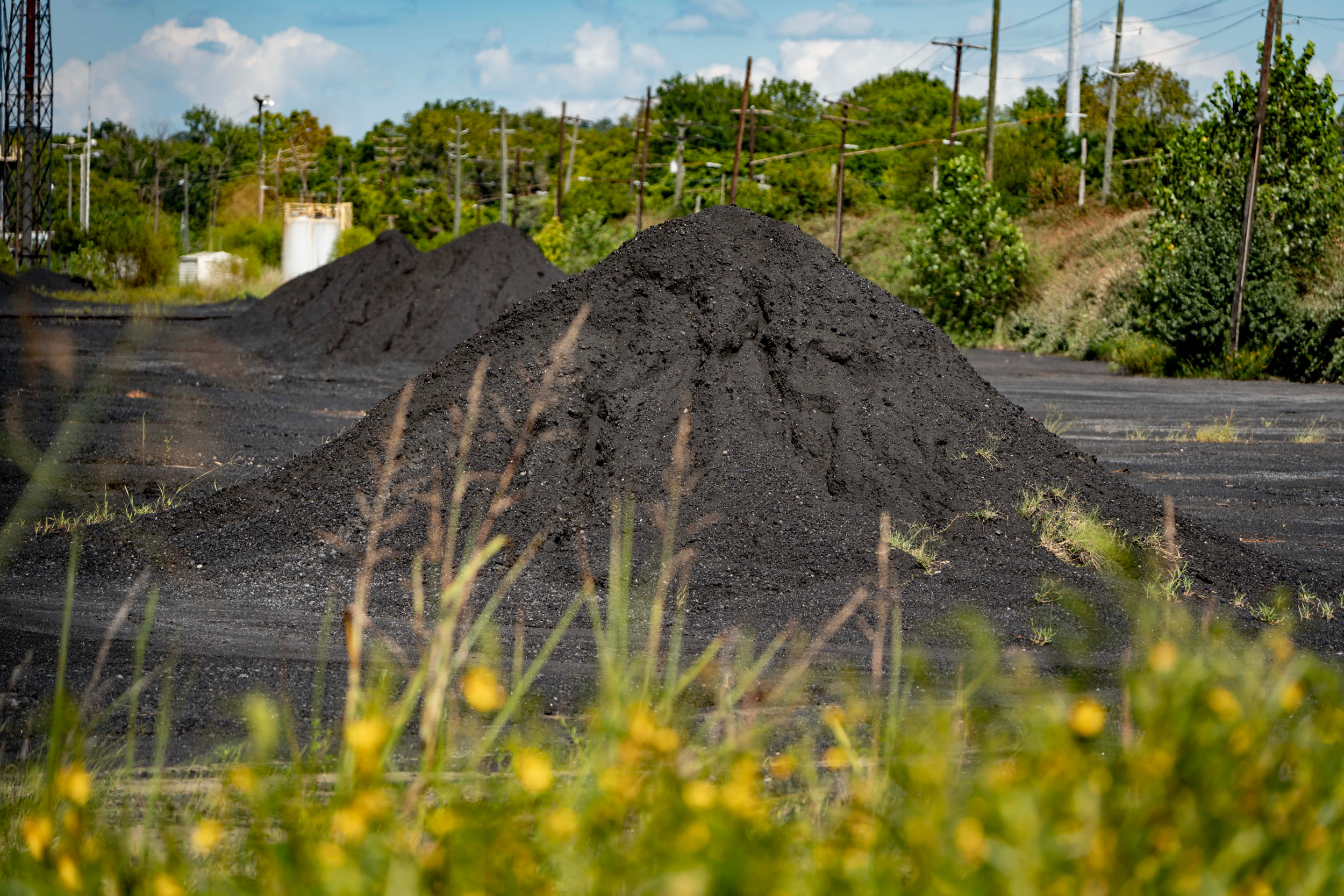
The Bluestone Coke plant opened in 1920 and previously operated as Sloss Industries Coke, Walter Coke and ERP Compliant Coke until Bluestone purchased the plant in 2019.
The EPA initially pointed to air pollution and water pollution in Five Mile Creek from numerous industrial operations in the area as the source of contamination in the neighborhoods. Later, the agency found that slag material from the foundries had been used as fill dirt when developing the neighborhoods.
That better explains the uneven distribution of contamination, as some properties in the area were found to have extremely high levels of toxic contaminants, while the properties next door did not exceed the EPA’s safety limits for residential properties.
According to the EPA, the agency sampled 2,054 of the 2,119 residential properties in the area for contamination from benzo(a)pyrene (BaP), lead and arsenic. Of those, 669 properties showed levels of some or all of those contaminants above the EPA’s removal limit.
EPA contractors then removed the contaminated soil to a depth of about two feet, replaced it with fill dirt and re-sodded the properties.
The EPA said it remediated 650 properties in the site, removing more than 90,000 tons of contaminated soil to send to “an appropriate landfill.”
The EPA said it was unable to contact the owners of 51 properties within the site, the owners of 19 properties declined cleanup and the owners of 14 properties denied the agency access to sample the soil.
An EPA spokesman told Inside Climate News that the agency has “temporarily [demobilized] from the site and will return to site when additional access to sample and/or cleanup residential properties are received.”
The cost of the cleanup so far has exceeded $46 million, paid for through the Superfund program, after negotiations with Walter Coke broke off.
In 2014, a push to have the site listed on the EPA’s National Priority List, a group of the highest priority cleanup sites in the country, stalled after local opposition to the listing.
In 2018, a state legislator, coal company executive and attorney were prosecuted for their roles in a bribery scheme intended to oppose adding the site to the NPL. All three were convicted and sentenced to prison time for their role, but the site was never added to the list.
Powell, a community activist, landlord and sometimes lawn maintenance worker, runs the nonprofit People Against Neighborhood Industrial Contamination to advocate for money for the residents to relocate to other areas. So far, there’s been little sign of momentum.
A Troubled Plant Finally Closes
The Justice family were hailed as heroes for saving local jobs after purchasing the troubled plant in August 2019. The previous owners were in dire financial straits and rumors abounded that the plant would be shuttered.
The Bluestone honeymoon was short-lived.
In 2019 and 2020, air samples collected by GASP outside the fence showed high levels of naphthalene and benzene, carcinogens linked to coke plants.
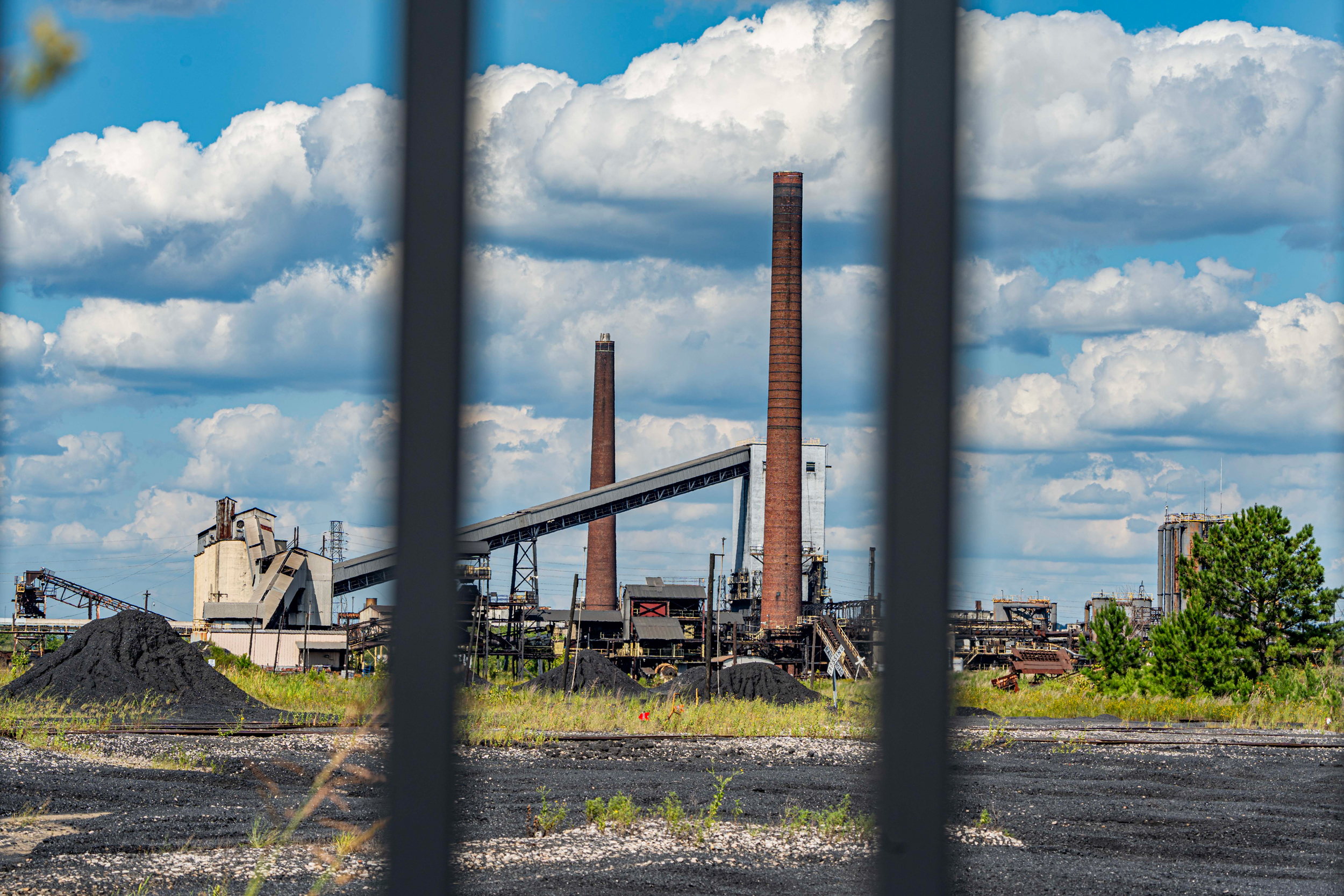
In August 2021, the Jefferson County Health Department—which administers Title V air pollution permits in the Birmingham area—denied Bluestone’s permit and filed suit against the company, alleging air pollution violations.
Within three months, most of the employees at Bluestone were laid off, and according to court records, the plant ceased operating on Nov. 12, 2021. Many of the laid-off employees are suing Bluestone for improper termination.
Birmingham-based attorney Rob Fowler, who left a prominent firm, Balch and Bingham, to take a job as Bluestone’s general counsel in 2021, is also suing Bluestone, alleging breach of contract and non-payment of bonuses.
Bluestone agreed to pay Jefferson County a $925,000 fine to settle its air pollution violations, the largest penalty ever issued by the county health department. In the agreement, the Health Department set requirements for the plant to reopen, including better pollution controls and air quality monitoring.
In 2023, the health department announced that Bluestone was behind on its payment plan for the $925,000 fine and was accruing late payment penalties.
The Health Department now says Bluestone has paid the entire civil penalty, but has not paid attorneys’ fees and other costs that were included in the settlement.
None of the improvements needed to reopen the plant appear to have been made.
Powell says the plant is mostly abandoned now, with three employees remaining to maintain security. The latest lawsuit alleges that the on-site wastewater treatment facility is “not operating or is operating inadequately.”
This story is funded by readers like you.
Our nonprofit newsroom provides award-winning climate coverage free of charge and advertising. We rely on donations from readers like you to keep going. Please donate now to support our work.
Donate NowStokes, the SELC attorney, said the residents of North Birmingham have suffered enough from “dirty, extractive” industries in the area.
“Bluestone Coke parachuted into North Birmingham, took what they could, and left Alabamians to clean up their mess,” she said. “The actions of Bluestone Coke and the Justice family are unconscionable.
“This case is about making sure Bluestone Coke cleans up the disaster it left in North Birmingham.”
The ‘Superhighway to Contempt’
Bluestone Coke is one of several Justice companies with a spotty record of paying bills.
A 2019 Forbes profile labeled Jim Justice “The Deadbeat Billionaire,” citing numerous examples of environmental fines, tax liens and other payments linked to Justice or his companies.
In 2024, a federal judge in Delaware ordered a company owned by the Justices to be moved toward a sale to satisfy debts to an investment firm representing a Russian mining company that bought several of Justice’s Bluestone Resources companies in 2009 for $568 million.
Justice bought the companies back from the Russians in 2015 for $5 million, but assumed “some $300 million in environmental and legal obligations,” Forbes reported.
Court filings by the creditors in that case say that by some estimates, “Bluestone Resources and its entities may owe diverse creditors over $1 billion.”
By the end of Wednesday’s hearing in Birmingham, Proctor was recounting the plot of the movie “Cool Hand Luke” and saying that in this case, there was a “failure to communicate.”
“In 21 years I’ve never had this type of conduct that I can recall,” Proctor said. “I’ve never had this thumb of the nose.”
During the hearing, Proctor said he would issue the contempt order, but left the company an “off-ramp” from the “superhighway to contempt.”
The contempt order can be purged if the company submits its required discovery materials by September 11 and reimburses the plaintiffs for attorney’s fees caused by the delays.
Proctor said the defense should be given every opportunity to comply so that the case could be decided on merit rather than procedural issues.
Proctor did say the defense would be on “thin ice” in the case going forward.
“If there are any other hiccups,” Proctor said, “the court will not be as patient.”
About This Story
Perhaps you noticed: This story, like all the news we publish, is free to read. That’s because Inside Climate News is a 501c3 nonprofit organization. We do not charge a subscription fee, lock our news behind a paywall, or clutter our website with ads. We make our news on climate and the environment freely available to you and anyone who wants it.
That’s not all. We also share our news for free with scores of other media organizations around the country. Many of them can’t afford to do environmental journalism of their own. We’ve built bureaus from coast to coast to report local stories, collaborate with local newsrooms and co-publish articles so that this vital work is shared as widely as possible.
Two of us launched ICN in 2007. Six years later we earned a Pulitzer Prize for National Reporting, and now we run the oldest and largest dedicated climate newsroom in the nation. We tell the story in all its complexity. We hold polluters accountable. We expose environmental injustice. We debunk misinformation. We scrutinize solutions and inspire action.
Donations from readers like you fund every aspect of what we do. If you don’t already, will you support our ongoing work, our reporting on the biggest crisis facing our planet, and help us reach even more readers in more places?
Please take a moment to make a tax-deductible donation. Every one of them makes a difference.
Thank you,

